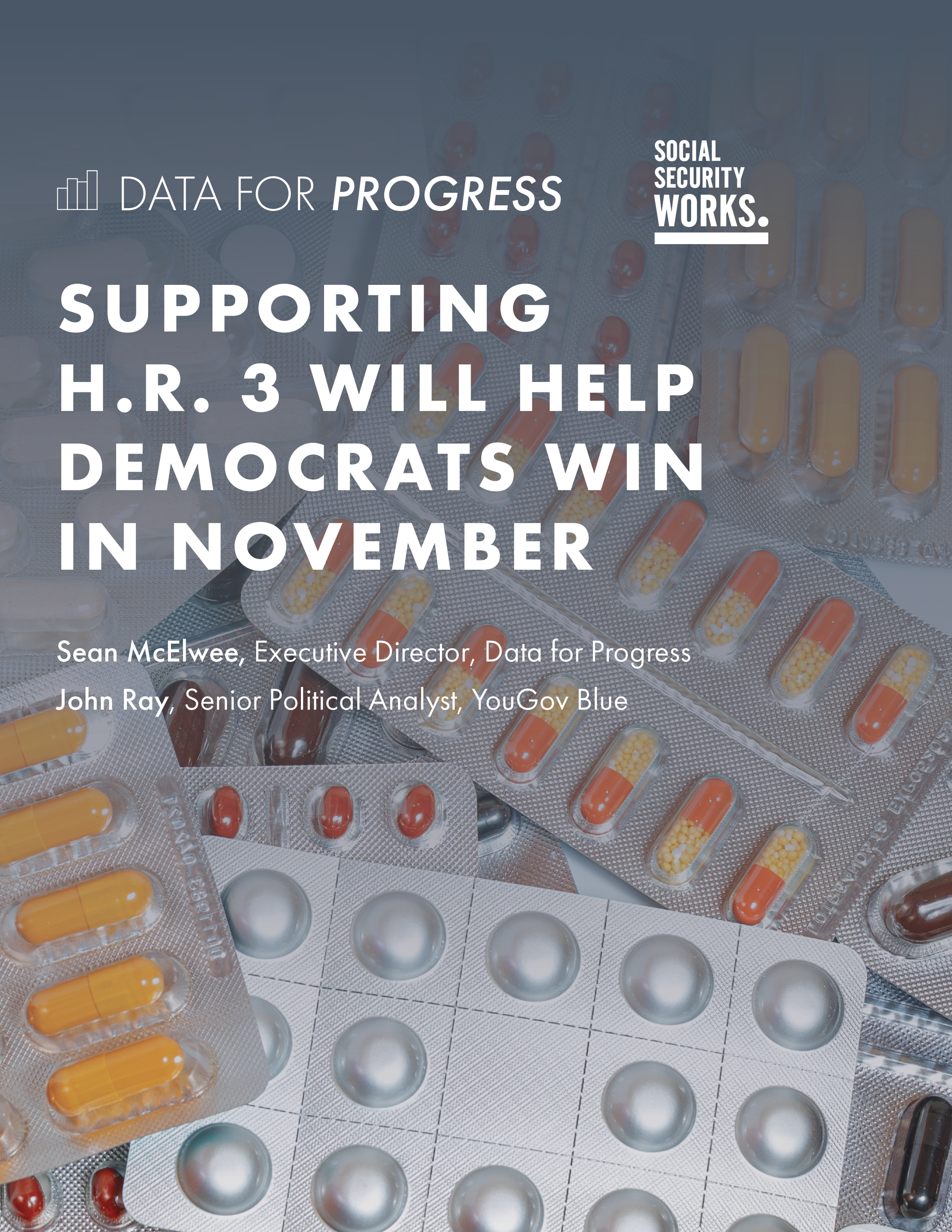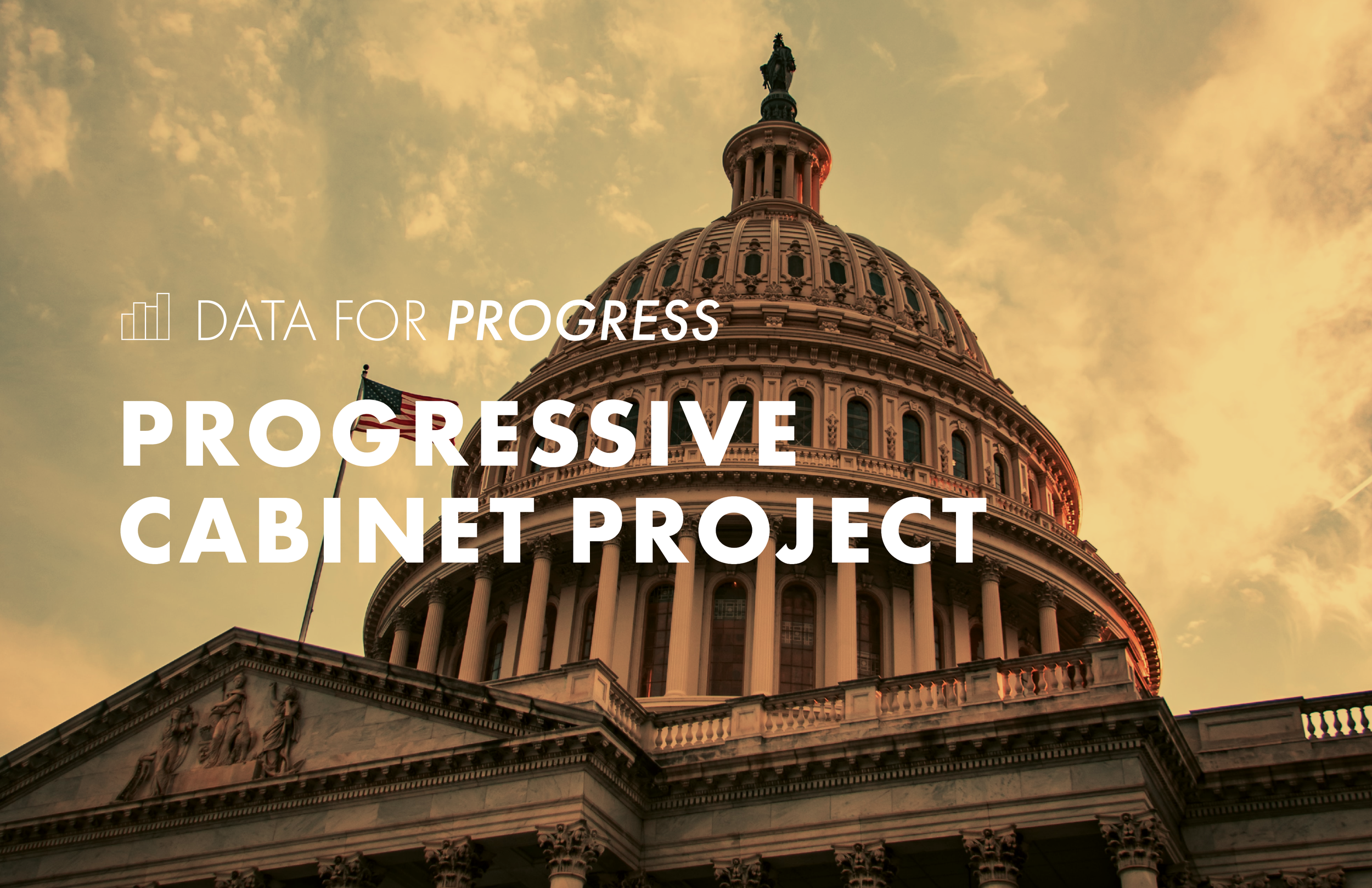Memo: H.R. 3 Can Stand Up to Scrutiny
By
Sean McElwee, Executive Director, Data for Progress;
John Ray, Senior Political Analyst, YouGov Blue.
Social Security Works
House Democrats are currently preparing to pass H.R.3, the Lower Drug Costs Now Act of 2019. Given the ability of pharmaceutical companies to spend large sums of money to influence congressional elections, we perform several tests to explore the durability of the policy. First, we test the deceptive framing that pharma companies have used in which they pretend to be a coalition of union and consumer groups.
We find that the core policy of H.R.3., allowing the government to negotiate drug prices is still popular when voters see a Democratic message and a message attributed to a collection of companies and unions. H.R.3 remains popular even when voters see no positive message and only a negative message.
Executive Summary
Of the various groups and organizations, we tested, only “for-profit hospitals” and “healthcare insurance companies” consistently tested negatively overall. It is a myth that voters like their insurers.
Voters strongly prefer capping the costs of drugs at the lowest levels possible and invoking new fines and fees on pharmaceutical companies that raise their prices too high.
In a message experiment, a hypothetical Democratic who campaigns on letting the government negotiate the price of drugs against a Republican who opposes such a policy outperforms a generic Democrat against a generic Republican by ten points on net.
Even when presented with only pharmaceutical industry arguments against pharmaceutical reform, delivered through a sympathetic messenger, voters support reforms to reduce drug prices. When presented with a Democratic argument for drug price negotiation, voters supported the policy by a margin of 56-26 and even with only pharmaceutical industry arguments, they still support the policy by 49 points to 30.
Voters support additional pharmaceutical reforms even when they involve unilateral action by the President.









